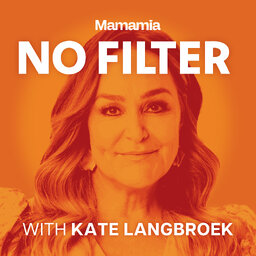"What REALLY Happened When I Confronted Belle Gibson"
In 2015, Australian con woman Belle Gibson was living the dream. Her app The Whole Pantry was hugely popular and she was about to launch a book of the same name.
With hundreds of thousands of followers online, Belle had become a celebrated wellness influencer who'd overcome terminal cancer and had cured herself with healthy eating and holistic therapies. But it was all a lie.
The truth came to light when her friend, Chanelle McAuliffe, noticed gaps in Belle's story. The moment she exposed her deception is now the focus of the Netflix series Apple Cider Vinegar.
Today, Chanelle tells us what the show got right and wrong, the challenges she faced as a whistleblower, and how she feels about Belle and her crimes now, a decade on.
Find more episodes of True Crime Conversations here.
THE END BITS
CREDITS
Guest: Chanelle McAuliffe
Host: Gemma Bath
Producer: Tahli Blackman
Audio Producer: Jacob Round
GET IN TOUCH
Email us at truecrime@mamamia.com.au or send us a voice note to give us feedback or suggest a case for the podcast.
Rate or review us on Apple by clicking on the three dots in the top right-hand corner, click Go To Show then scroll down to the bottom of the page, click on the stars at the bottom and write a review. You can also leave a comment for us on Spotify.
If any of the contents in this episode have caused distress, know that there is help available via Lifeline on 13 11 14 or Beyond Blue on 1300 22 4636.
Mamamia acknowledges the Traditional Owners of the Land we have recorded this podcast on, the Gadigal people of the Eora Nation. We pay our respects to their Elders past and present and extend that respect to all Aboriginal and Torres Strait Islander cultures.
In 1 playlist(s)
No Filter
Riveting stories. Fascinating lives. Australia’s #1 interview podcast, with Kate Langbroek.Social links
Follow podcast
Recent clips

For 15 Years, No One Was Listening To Lainey Wilson. Now She's Everywhere.
52:29

Supermodel Rachel Hunter Was The Ultimate 90s Muse - Then She Walked Away
1:14:06

Michelle Slept by Her Son’s ICU Bedside for Most of Last Year
1:15:11
 No Filter
No Filter